Iran's president: Iran supports any agreement approved by Palestinians
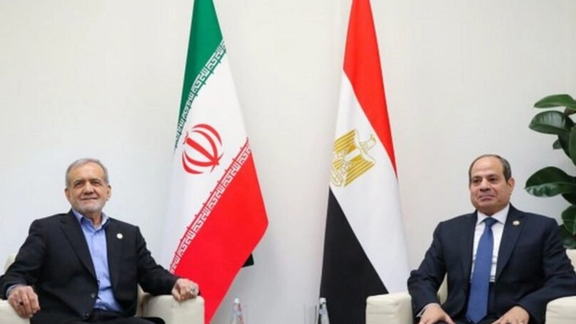
Iran will back any agreement that has the approval of the Palestinian people, Iranian President Masoud Pezeshkian said on Thursday.

Iran will back any agreement that has the approval of the Palestinian people, Iranian President Masoud Pezeshkian said on Thursday.
Pezeshkian traveled to Egypt on Wednesday to attend an economic summit in a rare visit that may signal thawing relations between the Islamic Republic and the Arab world's most populous nation.
Pezeshkian is in Cairo to attend a summit of the eight major Muslim developing countries, known as the D-8 Organization for Economic Cooperation.
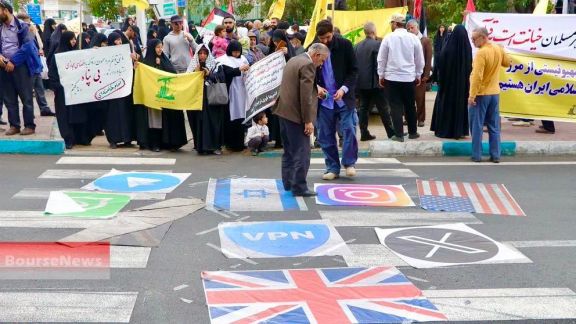
Iran plans to enter talks with Meta and X, the country’s communications minister Sattar Hashemi said, in what seems to be a bid to shift responsibility for filtering from the state to the platforms.
In August, the head of Iran’s Cyber Police said lifting restrictions on platforms like Instagram, Facebook, X, Telegram, and WhatsApp would require these companies to establish official representation in Iran, effectively forcing them to comply with state censorship rules.
For over two decades, Iran has implemented widespread censorship, blocking thousands of websites and restricting access to major social media platforms.
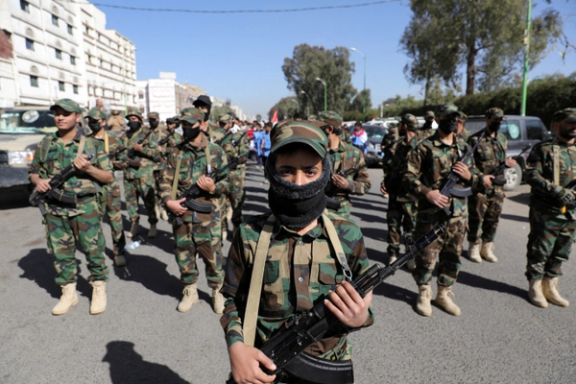
Israeli Prime Minister Benjamin Netanyahu said Thursday morning's airstrikes across Yemen targeting Iran-backed Houthi militias marked a decisive step in dismantling Tehran’s regional alliance.
"After Hamas, Hezbollah and the Assad regime in Syria, the Houthis are almost the last arm of Iran's axis of evil. They are finding out, and will find out, the hard way that whoever harms Israel – will pay a very heavy price," he said.
He made the remarks following dozens of strikes across Yemen early Thursday, about an hour after a Houthi missile struck a school in Ramat Gan.
"This morning, the Air Force attacked strategic targets of the Houthis in the port of Hodeidah and deep into Yemen," Netanyahu said. "We did this in response to repeated Houthi attacks against civilian targets in Israel," he added.
Last year, the Houthis launched a maritime blockade of the Red Sea region. Originally aimed at Israeli-linked vessels, it has since targeted global shipping.
"They are not attacking just us – they are attacking the entire world," Netanyahu said. "They are attacking the international shipping and commercial lanes. Thus, when Israel takes action against the Houthis, it is acting on behalf of the entire international community. The Americans understand this very well, as do many others."
In February, US and British forces launched a series of strikes on Houthi targets. They were supported by an international coalition, including Australia, Bahrain, Denmark, Canada and the Netherlands.
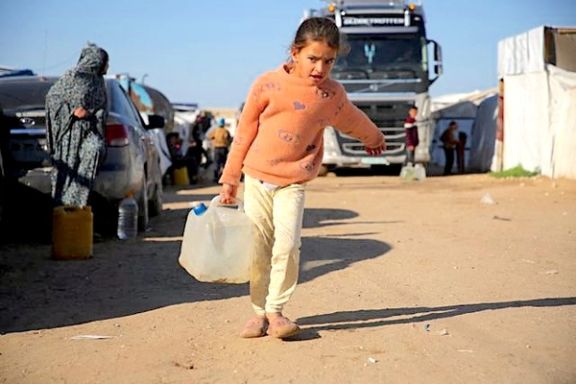
Turkey’s Foreign Minister Hakan Fidan leveled a diplomatic barb at Tehran, saying that Iran’s heavy involvement in Syria failed to protect the people of Gaza from a devastating Israeli incursion.
The criticism underscores the rift between the two Mideast heavyweights just as Ankara has gained more influence after Syrian rebels it supports ousted Iran's main Arab ally, President Bashar al-Assad.
"With all due respect to our Iranian friends, I mean, we’ve had this discussion maybe 1,000 times with them because their presence in Syria didn’t prevent a big genocide in Gaza," Fidan said in an interview with pan-Arab channel Al Jazeera published on Wednesday, referencing remarks made by Iran's Supreme Leader earlier in the week.
In his speech, Ali Khamenei emphasized that Tehran's armed groups, including Hamas and Hezbollah, remain strong despite external challenges. Addressing developments in Gaza, Lebanon, and Syria, Khamenei accused the United States and Israel of underestimating the strength of the Iran-backed resistance movement.
"They thought resistance was over. They are gravely mistaken. The spirit of Seyyed Hassan Nasrallah is alive; the spirit of Sinwar is alive," Khamenei said, referring to Hezbollah and Hamas leaders killed by Israel.
"Their martyrdom has not removed them from existence. Their path continues."
The plight of Gaza is a key issue animating political opinion in the Islamic world but neither Turkey nor Iran have been able to dent Israel's ongoing assault there.
Syria, under Assad, was a key component of Iran’s so-called 'Axis of Resistance,' serving as a vital land corridor for supplying weapons and materiel to Hezbollah in Lebanon. Over the years, Israel sought to disrupt this supply line through hundreds of airstrikes.
Fidan said Iran and Russia had realized their ally Assad was growing weaker.
“The Russians and Iranians have been in Syria a long time, and they know exactly how the Syrian regime has gone in a negative direction. They are very much familiar with the problem of the old Assad regime."
Fidan did not comment on whether any guarantees had been given to Iran or Russia, saying that it is for Syria’s people and government to decide.
In an interview earlier this week, Fidan said that Iran must better understand its actions following Assad’s downfall.
“I think Iran will also learn lessons in the new period; we need to help Iran in a constructive way,” Fidan said in an interview with Saudi-affiliated Al-Hadath on Sunday. He outlined Turkey’s vision for the Middle East as one based on cooperation and respect for sovereignty, adding, “We don’t want Iranian domination, Turkish domination, or Arab domination. It’s time for us to come together and establish our own interests, our own order in the region, shoulder to shoulder.”
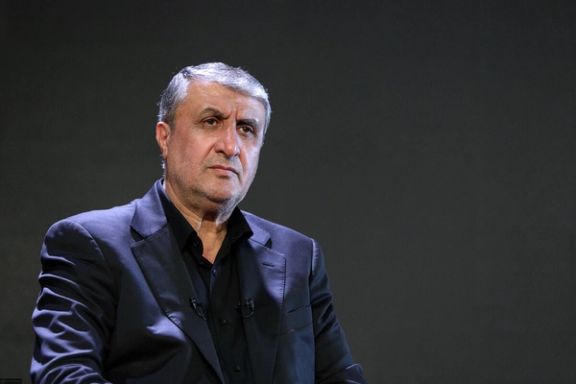
The International Atomic Energy Agency (IAEA) creates obstacles to Iran's use of peaceful nuclear technology due to US pressure, Mohammad Eslami, head of Iran's Atomic Energy Organization, said Thursday.
“The IAEA is obligated to promote, facilitate, and support peaceful nuclear technology so that it is accessible to all nations,” Eslami said during a state TV interview. “They mediate whatever is necessary to enable other countries to provide the technology you need, but when it comes to us, they create obstacles because they are implementing US congressional laws.”
"The sanctions are not aimed at economic goals; rather, they are intended to instill this narrative: 'If you don’t have money, why spend it on nuclear energy?' This is their tactic and tool to pursue their objective of preventing us from obtaining nuclear knowledge," Eslami said regarding sanctions on Iran's nuclear program.
Eslami also criticized the director of the UN nuclear watchdog on Wednesday for making what he described as provocative statements regarding Tehran’s nuclear program. He said that despite Iran accepting limitations on its nuclear activities to build trust and in exchange for the lifting of sanctions, the agency continues to misrepresent Tehran’s efforts.
Rafael Grossi, head of IAEA, said Monday that the 2015 Iran nuclear deal, known as the Joint Comprehensive Plan of Action (JCPOA), is no longer sufficient to curb Tehran’s uranium enrichment, which has exceeded international limits.
"Iran is enriching uranium close to military levels and is rapidly moving towards becoming a nuclear state," Grossi told the ANSA news agency. "The philosophy of the original accord with Iran can be used, but that agreement is no longer useful," he added.
Kazem Gharibabadi, Iran’s deputy foreign minister for legal and international affairs, also responded to Grossi’s remarks, stating, "The Director General of a specialized organization is expected to speak based on facts and technical reports from the Agency's inspectors. Reading intentions based on hypothetical scenarios is not part of the Director General's duties and is contrary to the letter and spirit of the Agency's statute."
On December 6, the IAEA reported that Iran had significantly accelerated its production of 60% enriched uranium, which is now approximately five times higher than a month ago. Iran is believed to possess enough 60% enriched uranium to produce four to five atomic bombs, should it choose to pursue nuclear weapons.
Since the US withdrew from the JCPOA, Iran has breached its nuclear commitments, increasing uranium enrichment to 60%, near weapons-grade levels. Subsequent negotiations with the US and the E3 (France, Germany, and Great Britain) have failed to revive the deal or secure a new agreement. With ten months remaining until the “Termination Day” for UN Resolution 2231, which sealed the JCPOA, the impasse on restoring the nuclear deal continues.
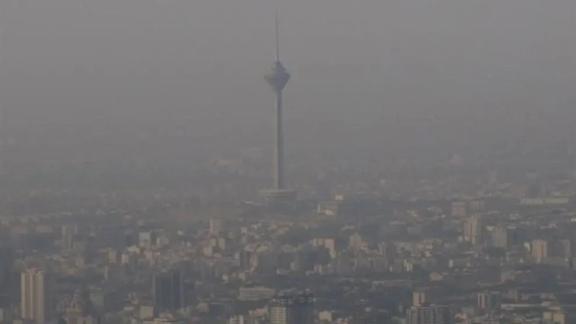
Government offices, schools, and universities in Tehran were shuttered on Thursday as the country's ongoing energy crisis escalated in a week of shutdowns across Iran.
Tehran's Governor Mohammad Sadegh Motamedian said closures of facilities this week have had little impact on reducing energy consumption or alleviating pollution.
"The closures have merely shifted the crisis from one point to another," he said, adding that they had led to more traffic, higher gasoline consumption, and, consequently, increased pollution.
The crisis has been unfolding across Iran. Ahmad Mousavi, CEO of the electricity distribution company in Golestan province, said that only a 10% decrease in consumption was seen after four-day closures.
The closures, which began earlier this week, are part of a broader set of measures taken across the country to combat both air pollution and the ongoing energy crisis.
It has seen the shutdown of 390 public and private swimming pools in Tehran alone. Additionally, industrial units have been forced to operate at reduced capacity, with small industrial units now working only two to three days a week due to ongoing energy shortages.
The economic cost of the closures is substantial for a country in the midst of the worst recession since the founding of the Islamic Republic, with losses estimated at 50,000 billion rials (over 63 million dollars) per day.
Industries face full wage payments despite significantly reduced working hours, and businesses are struggling to absorb the financial burden of both energy shortages.
The ongoing disruptions are also expected to exacerbate budgetary challenges for the government, which has projected a 39% increase in tax revenues for the next fiscal year—a target that may be difficult to meet given the widespread economic losses.
With the energy crisis showing no signs of easing, in spite of Iran's having one of the world's largest natural gas reserves and vast oil reserves, the situation is expected to worsen if international sanctions and domestic mismanagement continue to stifle necessary investment in the energy sector.
Energy expert Narsi Ghorban estimates that $250 billion is required to address oil and gas infrastructure issues, with an additional $19 billion needed for the electricity sector.
The looming threat of a return to stricter sanctions, particularly with the return of Donald Trump who has promised "maximum pressure" in his Iran policy, adds further uncertainty to Iran’s already fragile economic outlook.